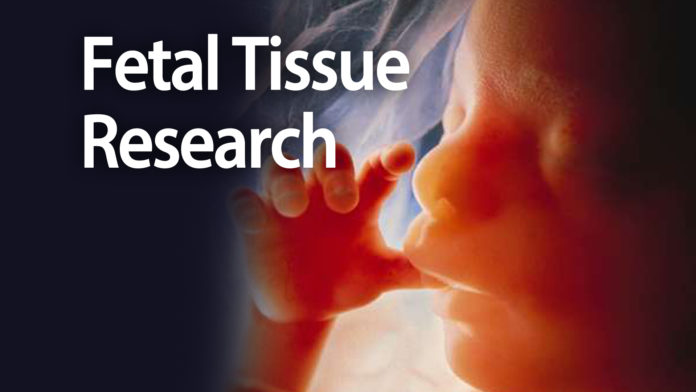Minneapolis, MN – A lawsuit was filed against the University of Minnesota Wednesday, claiming the University’s use of aborted fetal tissue for research is in direct violation of a Minnesota Statute.
The filed petition in Pro-Life Action Ministries, Incorporated, Brian Gibson and Bridget Busacker v. Regents of the University of Minnesota states:
- The University of Minnesota does not have authority to implement its administrative policy for “procuring and using human fetal tissue for transplantation research” when Minnesota law limits fetal tissue testing to only allow determining parentage prior to burial, for purposes of a criminal investigation, or for the health of the baby’s mother or her future offspring.
- The University of Minnesota is violating Minnesota fetal tissue research law (as stated in Minnesota statute 145.1621).
- The University of Minnesota policy allowing the testing of human fetal tissue from out-of-state for transplantation research is preempted by Minnesota law.
- The Court should issue a writ enjoining the University of Minnesota’s administrative policy for “procuring and using human fetal tissue for transplantation research” as an ongoing violation of Minnesota law.
When asked by state legislators if the University participated in fetal tissue research, the school originally said “no.” It was not until Alpha News discovered purchase orders of fetal tissue by the University that they admitted to the practice.
State Representative Abigail Whelan (R-35A) presented HF 2865 during the 2016 legislative session to offer a solution. Rep. Whelan’s bill would have provided one million dollars to the University of Minnesota to create a research center that would only do fetal tissue research on fetuses that “died of natural causes.” The University spoke out against the bill, and it failed.
Erick Kaardal is working as special counsel for the Thomas More Society and partner at Mohrman, Kaardal & Erickson, P.A. he said, “The University of Minnesota is not exempt from state legislation. How can you trust the research of an institution that condones illegal action? The school and its research department must be held accountable for placing themselves above the law.”
A press release sent out by the Thomas More Society states, “The state law limits tissue procurement to that obtained from miscarried or stillborn babies. Even if the university obtains body parts from another state, they are still subject to Minnesota regulations. Despite the revelation of these illegal practices, the publicly funded university continues to usurp the state’s authority.”
The Thomas More Society’s filing notes that because the university’s actions are unauthorized, any public funds involved have been misused. Also, the petition states that the university regents have overstepped their jurisdiction in superseding Minnesota’s legislative decisions.











